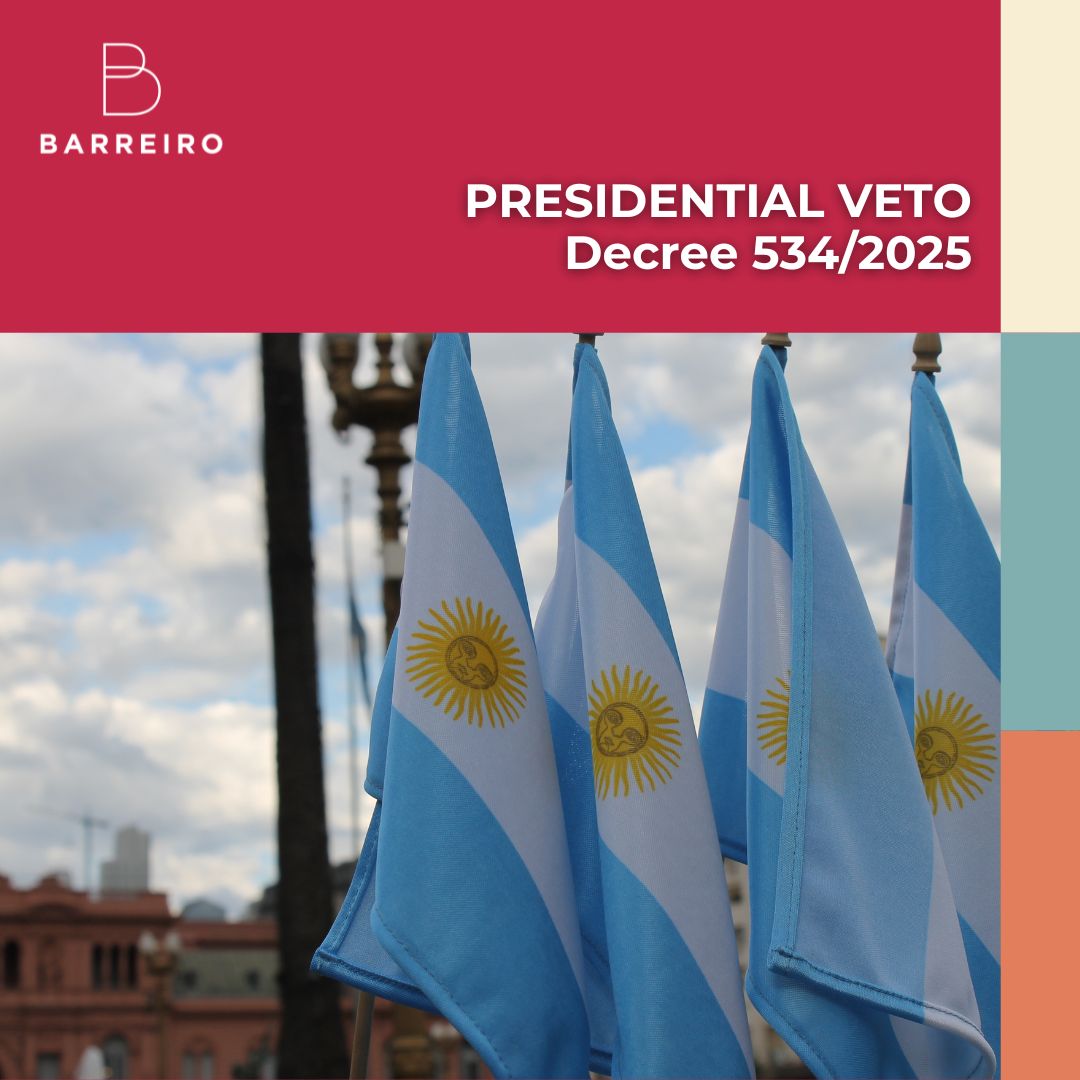Analysis of Decree 534/2025 – Total Veto of Bills 27.791, 27.792, and 27.793
Analysis of Decree 534/2025 – Total Veto of Bills 27.791, 27.792, and 27.793
1. Introduction and General Context
Decree 534/2025, signed by the President of the Nation, exercises the authority granted under Article 83 of the National Constitution to fully veto three recently approved bills. These bills contained measures with significant social and fiscal impact, primarily in the areas of pensions and disability.
2. Contents of the Vetoed Bills
- Bill 27.791: Proposed an extraordinary 7.2% increase in pensions and retirements, a social security bonus of up to ARS 110,000, and other complementary measures, financed through tax modifications and budget reallocations.
- Bill 27.792: Reinstated for two years the pension moratorium established by Law 27.705, expanded coverage of the Universal Pension for Older Adults, eliminated socioeconomic evaluations, and made the benefit compatible with other sources of income.
- Bill 27.793: Declared a national emergency on disability, created a new non-contributory disability pension equivalent to 70% of the minimum benefit, and established additional benefits for service providers and beneficiaries within the system.
3. Grounds for the Veto
The veto rests on three main pillars:
a) Lack or Insufficiency of Budgetary Provision
The decree invokes Article 38 of Law 24.156, which requires any expenditure not included in the current budget to have a clear, concrete, and sufficient source of financing. According to the Executive’s analysis:
- The combined cost of the three bills exceeds ARS 7 trillion for 2025 and ARS 17 trillion for 2026, representing between 0.90% and 1.68% of the GDP, respectively.
- The proposed sources of financing are described as “insufficient, technically and legally flawed,” including reallocations deemed impossible to execute and tax eliminations with minimal revenue impact.
b) Risk to Fiscal Balance and Pension System Sustainability
The Executive stresses that these bills would jeopardize the government’s fiscal targets and the “zero deficit” mandate adopted by the current administration. It warns that the implementation of these laws would severely compromise the sustainability of the Argentine Integrated Pension System (SIPA).
c) Formal Irregularities in the Legislative Procedure
The decree challenges the legality of the Senate’s approval process, citing:
- Lack of formal summons to senators.
- Absence of valid committee reports.
- Inappropriate application of voting rules (simple majority instead of the required two-thirds).
- Explicit warnings from the Parliamentary Secretariat regarding the formal invalidity of the reports.
These procedural flaws, according to the decree, violate fundamental principles of the republican system and result in an illegitimate legislative sanction.
4. Final Considerations
The decree concludes that enacting these bills would not only undermine fiscal balance and institutional respect, but also represent a return to failed fiscal practices—monetary emission, public debt, and tax increases. The Executive thus reaffirms its commitment to macroeconomic stability, the electoral mandate, and the principles of the so-called “Pacto de Mayo”.
Complete text of the decree: https://www.boletinoficial.gob.ar/detalleAviso/primera/329236/20250804
